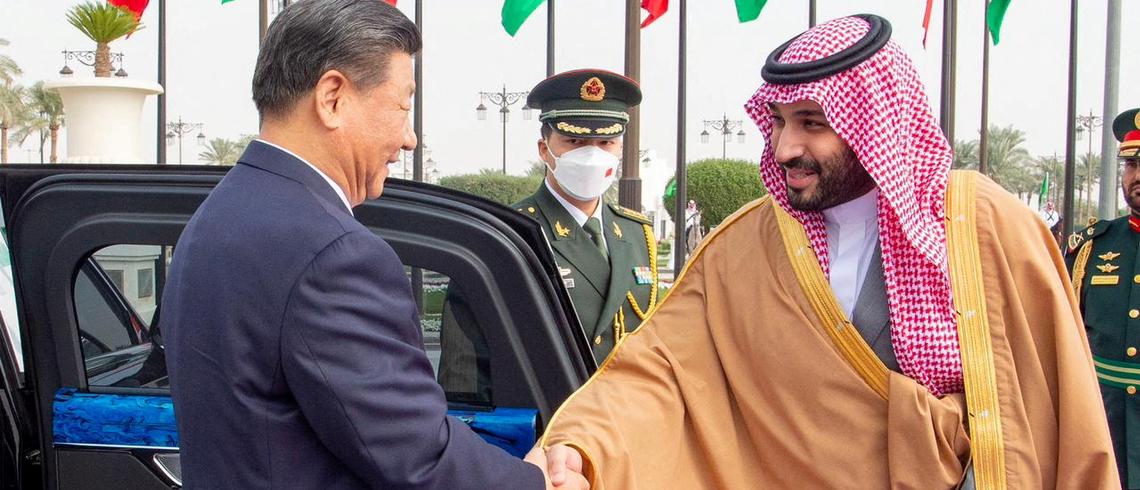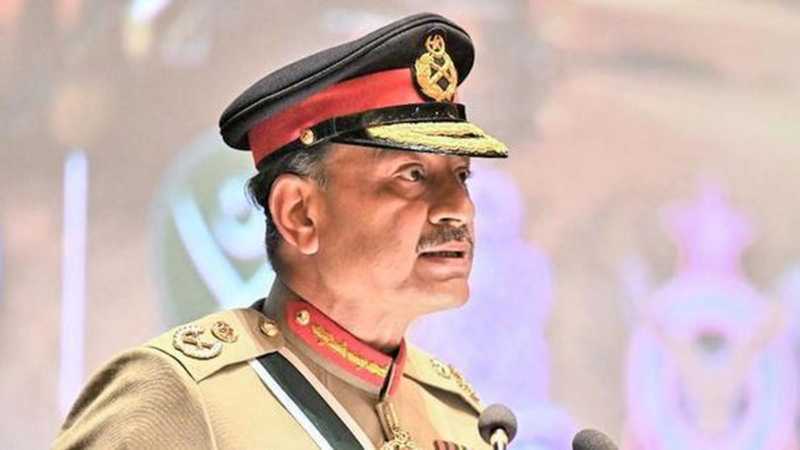Analysis on China’s Middle East tightrope dance under asymmetric neutrality

Experts say that staying ‘neutral’ in its global engagements might become difficult for Beijing in the long term.
As the US embraced a policy of withdrawal from the Middle East, China stepped in to fill the void, emerging as an important player in the energy-rich region.
The tectonic shift has led to experts commenting on and comparing the policies of the two military and economic giants, analysing the different approaches of Washington and Beijing and the success and failure of their policies.
Shaun Breslin, professor of Politics and International Studies at the University of Warwick and the author of China Risen? Studying Chinese Global Power, says that Beijing goes “to great extents to explain to the rest of the world – and in particular, non-western countries – that they are a very different type of great power to previous ones; and other existing current ones too”.
However, he tells TRT World that “the lack of any historical baggage in the region is important too” when evaluating the different positions of the US and China.
What makes China’s case different from the US’s is its so-called policy of neutrality among the Middle East countries.
But according to Prof Breslin, this “asymmetric neutrality” – as he calls the policy – can neither be easily managed in the long term nor remain a reality. “It might get a bit trickier for China’s leaders to maintain a position of neutrality. Look at the way they are trying to position themselves as neutral in the Ukraine conflict, for example…I think it is fair to say that they are practising asymmetric neutrality.”
“Asymmetric neutrality” as a principle leads China to a balancing act by supporting Russian concerns over NATO expansion and the West hegemony and, simultaneously, offering to broker peace in the Ukraine conflict.
Nevertheless, this policy has brought results for China and the volatile region, as exemplified by the recent thaw in the frosty relations between Iran and Saudi Arabia. This peace deal between the previously bitter rivals, brokered by Beijing, is being seen as the biggest success story so far of China’s involvement in the Middle East.
However, not all are convinced about the durability of China’s policy in the region.
Andrew Chubb, a lecturer at Lancaster University and the author of Chinese Nationalism and the Gray Zone: Case Analyses of Public Opinion and PRC Foreign Policy, says that Beijing will find it difficult “to maintain those friendly ties with everyone in the region at the same time as time goes on, and China’s role becomes more critical.
“It may even be tested very soon if one or more of the parties to the Iran-Saudi agreement fails to deliver what they have promised.”
Is it just economic interest?
The experts also point to the fact that Beijing’s friendly efforts in the region come with a rider – economic cooperation. This, they say, raises concerns about whether China’s offer of a helping hand is motivated by financial concerns and not much due to political or ideological motivations.
“China does not have any recent record of attempting to push systemic change in other countries. That makes it different from the US and also from China in the Mao era,” says Dr Chubb.
Breslin puts the same concern from a different perspective. “The lack of any perceived political agenda regarding ‘democratisation’ clearly puts China in a different position to the US and other Western liberal powers.”
Although China appears not to intervene in the domestic politics of the countries in the region, its Middle East policy can also mean potential gain for its own domestic politics.
“Economics is not apolitical. The search for energy security, for example, is connected to regime legitimacy in China and the way that the CCP wants to govern,” says Breslin.
Is security excluded from the agenda?
In addition to the policy of non-interference, China also does not claim to be a security provider in the region as the US did.
The US has had a traditional security perspective in which military action and exclusive defence alliances are key to Washington’s policy, connecting security in the Middle East to its own national security.
China has a different perception of security in the region, which sees peace through economic development and emphasises the shared interests among the regional players.
Though it claims not to provide security first-hand as the US did, Beijing has been a big defence exporter to the region. Also, its huge investment in commercial ports in the Middle East has shown its long-term goal to strengthen naval facilities there and have a say in the control of waterways.
Chubb explains these investments through the prism of China’s energy dependency. “The US is no longer a major energy importer, while by contrast, China relies on imports for a large volume of its oil in particular.”
This implicitly means guaranteeing its energy security, and the Middle East, and of late Russia, provide the best option for the world’s second-largest economy.
“Given the US’ energy self-sufficiency and declining interest in the region, China may need to provide its own maritime security guarantee in the region. Once that happens, China may not look so different (from the US) after all,” says Chubb. “This reveals the political side of the issue and diverts our attention to the similarities in the visions of great powers.”
Breslin signs off with an interesting insight into Beijing’s foreign policy initiatives. “The whole point of the global development initiative of China is to establish an idea of China by not so much talking about what it is, as emphasising what it isn’t.”






